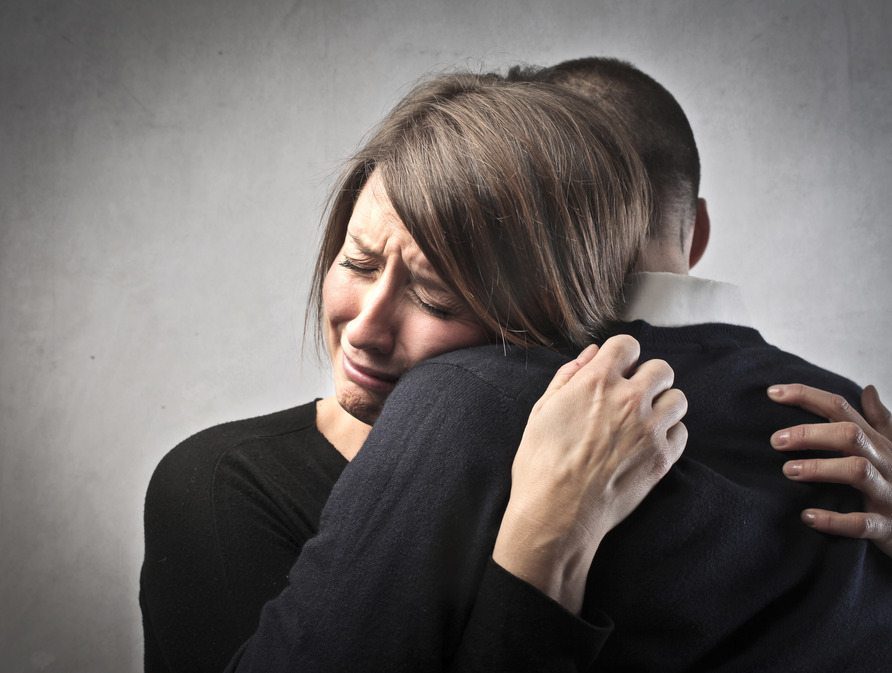Depression is an incredibly difficult thing for a person to go through. Feelings of worthlessness, hopelessness, sadness, anxiety, emptiness, loss of interest, and even physical aches and pains like headaches and cramps, are a constant reminder for someone with depression that they are afflicted.
If someone that you love has been diagnosed with depression, you may indeed be feeling some of these things yourself. Please understand that it is important for you to be there for your loved one, and that they need your support.
Here are 8 ways that you can compassionately support someone with depression.
#1: Research and understand what depression is
This is very important; as it helps you understand what the body and mind actually experience during depression.
For example, many people do not know that there are at least nine major classes of depression. These classes all have various symptoms and some have different treatment measures.
Understanding depression, depression types, and treatment options will put you in a better position to understand the illness. With this understanding, you are far less likely to criticize, judge, or otherwise, offend the person.
#2: Be there for them
After understanding the illness, you should be there for them. Be aware that your loved one’s mood maybe not so good, and that they may also feel tired or irritable. It’s important not to take this personally, as these are just byproducts of the illness.
Again, be there for support – not for tough love, giving advice, or other ulterior motives.
Your presence is the most important thing here.
#3: Show them the good things in their lives
Here, don’t tell them how they should feel – like that they should be grateful, positive, enthusiastic, etc. Simply tell them they are loved or cared for, and that people are thinking about them.
If you are not a particularly emotional person – that’s okay! Simply send them a text message or send them a letter or card, or post to their Facebook page.
#4: Release judgement
This is very important and needs to be completely understood. Most people with depression are already ashamed and feel weakened; criticizing or judging them makes an unfortunate situation even worse, and could possibly isolate you from your loved one.
Judging and criticizing a chemical-based illness is pointless and potentially very damaging to the afflicted and the relationship. Remember, depression is not a personality flaw; it is a medical illness with years of scientific research.
Contrary to popular belief, they don’t pity themselves and many of them are strong people.
#5: Be gentle with yourself
When a very close family member or friend is going through depression, it can be very difficult to come to terms with the fact that there is only so much that one can do.
Depression is a battle, and it can be a very long one. In the heat of this battle, you are certainly going to feel helpless and perplexed at times. Remember, you can equip and support the troops as much as possible, but they are the ones that fight.
You cannot solve this problem or heal them of this disorder – this is for the doctor or the therapist to do. The best thing you can do is show unconditional love and support while lending a helping hand.
#6: Take care of yourself, too
Helping someone as they battle depression can be exhausting and trying, both mentally and physically.
If you are in a weakened or stressed state, how effective will you be for your loved one?
You should make sure that your own needs are being met and that you are taking care of yourself too. Make sure that you are getting ample sleep, good nutrition, and getting in some fun time for yourself.
#7: Encourage treatment
Some people with depression don’t even realize that they have it, much less seek any kind of treatment. Often, those that are affected often feel ashamed to admit that they are. Some feel that the ailment can be overcome with just willpower or with time.
The truth is that it’s rare for people to get better without some type of treatment. This can be through a doctor/counsellor, nutrition therapy, positive inspiration, or a combination of all.
With your knowledge of depression, you are well equipped to recognize the signs and symptoms of depression. Further, you are able to encourage them and discuss their options for treatment.
#8: Educate them
Here are some things that you can do to help…
– Discuss with the person what you’ve noticed and your concerns.
– Explain that you are more than willing to lend an ear if they want or need to talk.
– Explain that depression is a medical condition, caused by chemical imbalances in the brain. It is not a sign of weakness or some kind of character flaw and usually gets better with treatment.
– Discuss the various treatment types, including counseling.
– Offer to help set up and get them ready to take the next positive step.
Depression is a serious condition and needs to be treated ASAP. If your loved one is opposing treatment or shows troubling signs or behaviors, you should contact a doctor or other mental health professional for advice.
By compassionately supporting someone with depression you are better equipped to help your loved one through this difficult time. You may even save their life.















